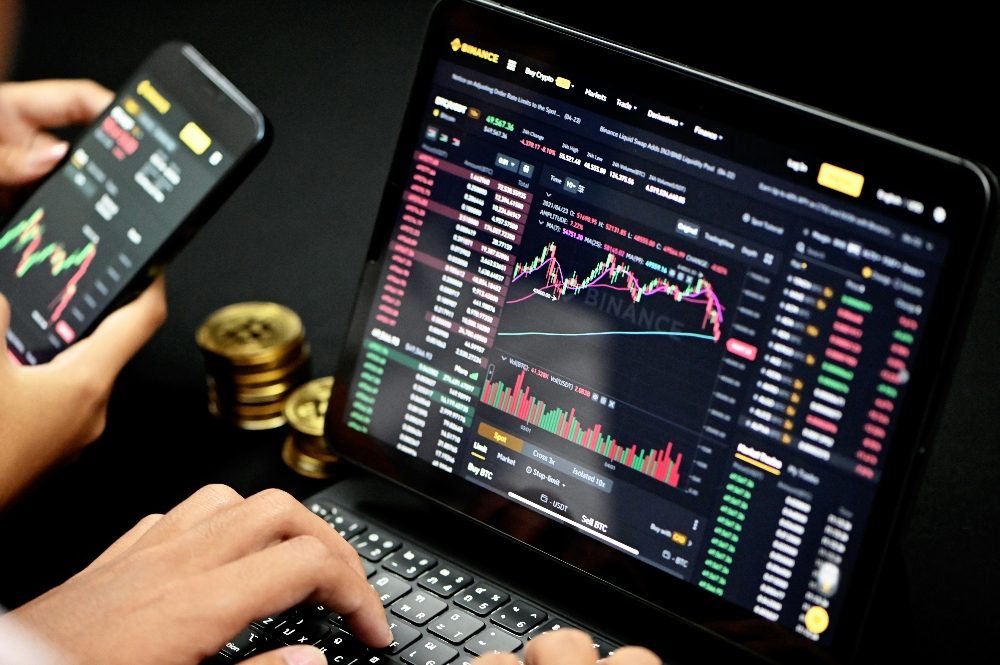Argentina’s markets tumbled on Monday after a major loss for President Javier Milei’s party to the Peronist opposition in local elections, reigniting concerns about the government’s ability to advance its economic reform program.
As markets opened, the peso dropped nearly 6% against the dollar, and the benchmark Merval stock index dropped 13%. US-traded Argentine stocks fell by almost 18%, buckling under the massive slides over the past weeks.
Several of the nation’s foreign debt also posted their biggest losses since they began trading in 2020 after a $65 billion shake-up under the previous President Alberto Fernandez.
The 2035 bond fell 6.1 cents, heading for its biggest one-day drop since the sale.
Election defeat stokes uncertainty
The Peronists won by 13 points in Buenos Aires Province, with 47.3% of the vote versus Milei’s party’s 33.7%, according to official figures with nearly all ballots counted.
The margin greatly exceeded market predictions and pre-election polls, raising concerns that Milei’s reform agenda may face severe challenges ahead of the national midterm elections on October 26.
“The scale of the defeat far exceeded expectations,” wrote JPMorgan analyst Diego Pereira in a note.
He noted that the outcome foreshadowed a difficult road ahead for the administration and that Milei may need to rethink his political strategy in the coming weeks.
Shamaila Khan, UBS’s head of Fixed Income Emerging Markets and Asia Pacific, stated that the foreign currency market would continue to be scrutinised.
“Any instability there can have a ripple effect on Argentine assets,” she said, adding that the midterm elections would be more influential in influencing market performance than the provincial vote.
Bonds and currency under pressure
Argentina’s bonds were hammered badly, with Morgan Stanley warning before the vote that a poor performance by Milei might wipe up to 10 points from foreign debt prices.
Following the outcome, the bank reversed its “like” stance toward the securities.
The peso, which was just unpegged, has faced significant pressure in recent weeks, prompting authorities to intervene in currency markets.
Economy Minister Luis Caputo stated on Sunday that the country’s foreign exchange policy will not alter, but analysts were suspicious.
“We’re likely to see strong FX pressure and declining reserves as the Ministry of Economy intervenes,” said Barclays analyst Ivan Stambulsky.
He warned that continuous sales could raise concerns about whether authorities will be driven into another depreciation before the midterm elections.
Political setback amid scandal
The electoral defeat comes at a critical time for Milei’s leadership. Since Milei entered office in December 2023, Argentina has been hailed as one of the most promising reform stories in emerging economies.
However, a corruption scandal involving Milei’s sister and political gatekeeper, Karina Milei, has caused a surge in volatility over the last month.
The controversy and resulting uncertainties have driven the Merval index down by nearly 20% since it broke, while international bonds have fallen, and the peso remains under pressure.
“The result was much worse than the market expected. Milei took quite a big beating, so now he has to come up with something,” said Viktor Szabo, portfolio manager at Aberdeen Investments.
Outlook ahead of midterms
According to Reuters, some analysts added that Buenos Aires Province is a historic bastion of Peronism, indicating that the result may not be repeated on a national level.
They also forecasted that Milei would maintain the fiscal course despite “political and market blows”.
Sergio Armella, a Goldman Sachs analyst, argued that the provincial result will have little impact on policy direction.
“The PBA election took place amid a significant tightening of domestic financial conditions, a depreciation of the peso, expectations of a slight uptick in August inflation, and a deceleration in economic growth,” he said.
Arnella added that “the provincial election stands to have a very limited effect on the policy mix of the Milei administration; it does represent a political setback for the government.”
Markets are here prone to remain volatile with five weeks left in the national midterms, as investors will judge whether Milei will be capable of protecting his economic program against increasing political opposition and market strains.
The post Argentina markets plunge after Milei party suffers heavy defeat in local elections appeared first on Invezz

